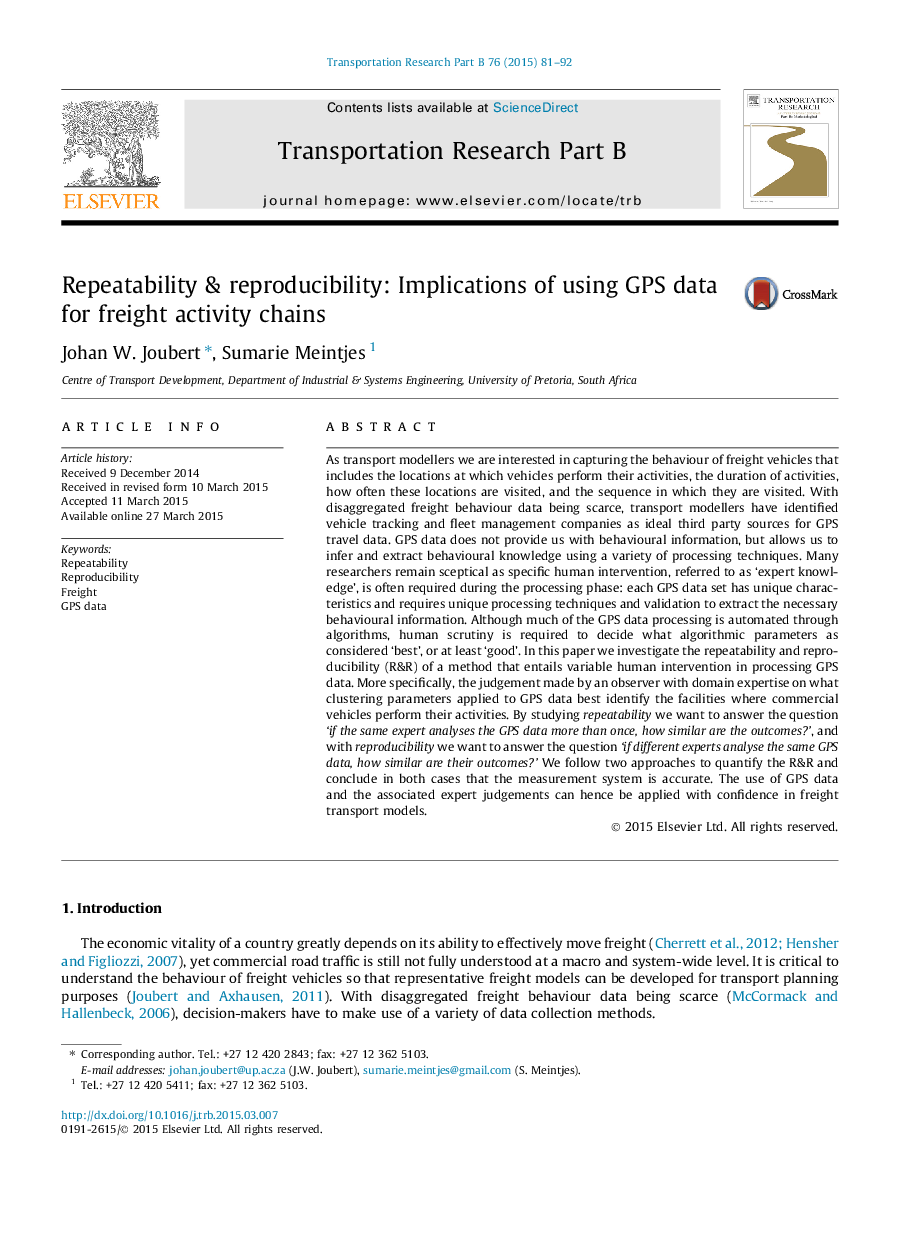| Article ID | Journal | Published Year | Pages | File Type |
|---|---|---|---|---|
| 7539458 | Transportation Research Part B: Methodological | 2015 | 12 Pages |
Abstract
As transport modellers we are interested in capturing the behaviour of freight vehicles that includes the locations at which vehicles perform their activities, the duration of activities, how often these locations are visited, and the sequence in which they are visited. With disaggregated freight behaviour data being scarce, transport modellers have identified vehicle tracking and fleet management companies as ideal third party sources for GPS travel data. GPS data does not provide us with behavioural information, but allows us to infer and extract behavioural knowledge using a variety of processing techniques. Many researchers remain sceptical as specific human intervention, referred to as 'expert knowledge', is often required during the processing phase: each GPS data set has unique characteristics and requires unique processing techniques and validation to extract the necessary behavioural information. Although much of the GPS data processing is automated through algorithms, human scrutiny is required to decide what algorithmic parameters as considered 'best', or at least 'good'. In this paper we investigate the repeatability and reproducibility (R&R) of a method that entails variable human intervention in processing GPS data. More specifically, the judgement made by an observer with domain expertise on what clustering parameters applied to GPS data best identify the facilities where commercial vehicles perform their activities. By studying repeatability we want to answer the question 'if the same expert analyses the GPS data more than once, how similar are the outcomes?', and with reproducibility we want to answer the question 'if different experts analyse the same GPS data, how similar are their outcomes?' We follow two approaches to quantify the R&R and conclude in both cases that the measurement system is accurate. The use of GPS data and the associated expert judgements can hence be applied with confidence in freight transport models.
Related Topics
Social Sciences and Humanities
Decision Sciences
Management Science and Operations Research
Authors
Johan W. Joubert, Sumarie Meintjes,
